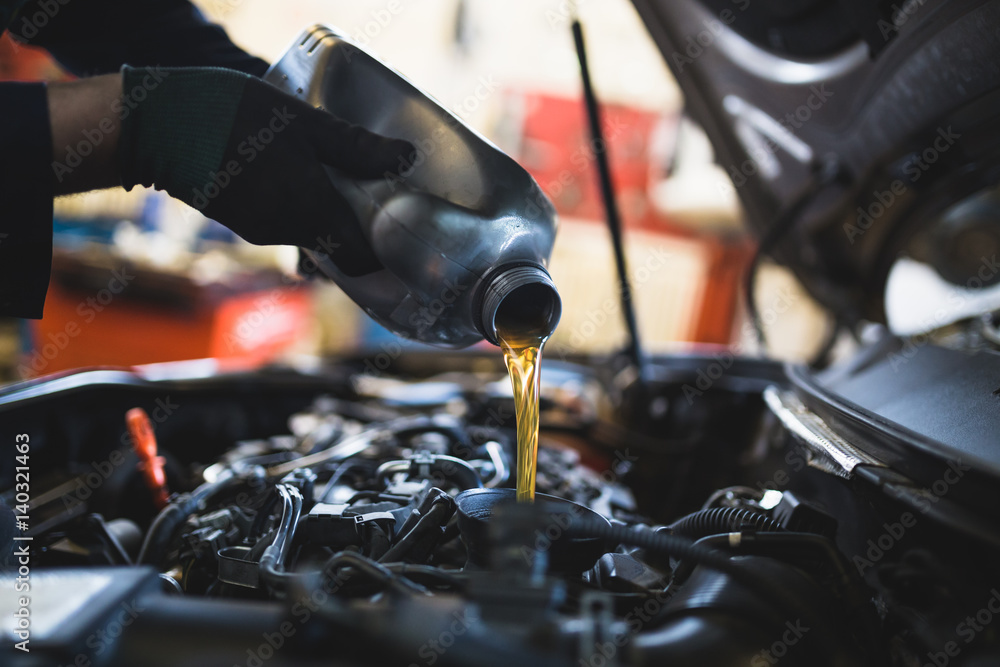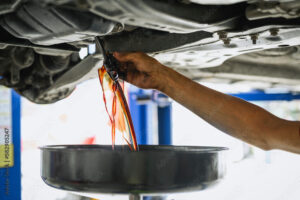Are Oil Changes Covered Under Warranty?
Oil changes are usually not covered by a standard vehicle warranty. Manufacturer and extended warranties typically cover repairs and replacements for manufacturing defects and mechanical issues. They are not intended for routine maintenance tasks like oil changes, tire rotations, and other regular upkeep. The vehicle owner is responsible for routine maintenance, and these services are usually not included in the warranty. Refer to your warranty documentation for the specific terms and coverage details.
One of the most important aspects of car care is changing the engine oil. Your car engine is a complex piece of machinery made up of thousands of different moving parts. The oil helps keep them lubricated and prevents the wear and tear to your car’s components which is Why Oil Changes Are Important.
Always consult your warranty documentation and speak with your dealership or manufacturer for accurate information about what is covered under your specific warranty.
The Jeep Wave Program, a loyalty program aimed at enhancing the ownership experience for Jeep owners, provides complimentary oil changes. This means that eligible Jeep owners can receive a set number of complimentary oil changes as part of the program. The specific terms and conditions of the program determine the exact number of complimentary oil changes.
Does Changing Your Own Oil Void Warranty?
Typically, changing your own oil will not void your vehicle’s warranty. However, there are several crucial factors to take into account.
- Follow Procedures. To change your own oil, follow the manufacturer’s procedures and use recommended oil and filters. Incorrect or substandard products can damage your vehicle and may not be covered under warranty.
- Document. Maintain detailed records of oil changes, noting the date, mileage, and specifics of the oil and filter used. This documentation will prove invaluable in the event of warranty disputes or inquiries.
- Understand Warranty Coverage. Understanding what is covered by your warranty is crucial. While routine maintenance tasks like oil changes are typically not included, components that may be impacted by improper maintenance could be affected. Certain warranties may mandate that maintenance must be conducted by authorized dealerships or certified mechanics to uphold warranty coverage.
- Modifications and Tampering. Modifying or tampering with vehicle components during an oil change may have warranty implications. Significant alterations to the engine or other systems could potentially void parts of the warranty.
- Contact the Manufacturer or Dealership. To determine if doing your own oil changes may impact your warranty, consider reaching out to the manufacturer or your dealership for clarification. They can offer valuable insights based on your vehicle and warranty terms.
To preserve warranty coverage, vehicle owners must approach changing their own oil with care, attention to detail, and a professional mindset.
How To Keep Records Of An Oil Change When You Do It Yourself?
Maintaining a comprehensive record of self-performed oil changes is crucial for preserving your vehicle’s historical data and warranty paperwork. Here’s an effective method for monitoring your at home oil changes:
- Create a Maintenance Log. Establish a dedicated maintenance log or journal for your vehicle. Choose from a physical notebook, computer spreadsheet, or smartphone note-taking app.
- Include Relevant Information. Include the following information for each oil change entry:
- Date of the oil change
- Current mileage on your vehicle
- Type and brand of oil used
- Type and brand of oil filter used
- Receipts and Invoices. Retain all receipts and invoices for the oil change. This includes receipts for the oil, filter, and other supplies used. Attach these documents to the relevant entry in your maintenance log.
-
Photo Documentation. Capture images of the oil change process, such as the oil filter, drained oil, and other relevant components. This visual evidence can serve as additional verification that the oil change was correctly executed.
- Organize and File. Store your physical records in a designated folder or envelope within your vehicle’s glove compartment or another easily accessible spot.
- Reference Your Owner’s Manual. Refer to your vehicle’s owner’s manual for specific recommendations on maintenance record-keeping. Certain manuals may include sections dedicated to recording maintenance details.
Maintaining thorough and organized oil change records allows you to track your vehicle’s maintenance, improve resale value, and provide documentation if needed for warranty purposes.
How Often Should You Get An Oil Change?
The frequency of oil changes relies on various factors, such as oil type, driving habits, and manufacturer recommendations. Previously, the oil change recommendation was every 3,000 miles. However, advancements in engine and oil technology have extended these intervals for modern vehicles. Here are some guidelines to consider:
- Follow Manufacturer Recommendations. The owner’s manual is the primary source of information for your specific vehicle. Manufacturers establish recommended oil change intervals based on their engineering and testing for your particular make and model.
- Synthetic Or Conventional Oil. Synthetic oils provide superior high-temperature stability and longevity relative to conventional oils, resulting in extended oil change intervals for vehicles utilizing synthetic oil. Modern vehicles using synthetic oil often have recommended intervals of 5,000 to 7,500 miles or more.
-
Driving Habits. Given frequent stop-and-go city driving, heavy towing, or extreme temperatures, your vehicle may need more frequent oil changes. These conditions impose extra strain on the engine and oil.
- Oil Monitoring Systems. Certain vehicles have Oil Life Monitoring Systems that analyze driving conditions and oil quality using sensors. These systems offer a more precise indication of when your oil needs to be changed compared to a fixed mileage interval.
- Time-Based. Even if your vehicle is not driven frequently, it remains crucial to periodically change the oil. Oil degradation can occur over time due to factors such as moisture, temperature fluctuations, and chemical reactions. An advisable guideline is to perform an oil change annually, regardless of whether you have not yet achieved the manufacturer’s recommended mileage interval.
Regular oil changes are essential for maintaining engine health. However, changing the oil too frequently may not yield significant benefits and can be wasteful. On the other hand, neglecting oil changes can result in engine damage. Finding the optimal balance through adherence to manufacturer recommendations and careful consideration of driving conditions is crucial.
Always refer to your vehicle’s owner’s manual for the most accurate and up-to-date information on oil change intervals.
Where Should I Get My Oil Changed?
You have several options for getting your oil changed, and the choice depends on your preferences, budget, and convenience. Here are some common places where you can get your oil changed:
Dealership Service Center
Vehicle owners frequently opt for dealership oil changes for their cars. Dealerships commonly utilize manufacturer-approved parts and fluids and employ technicians specifically trained for your make and model. Dealerships are an ideal location for oil changes if you have warranty coverage; some warranty providers may require it.
Auto Repair Shops
Local auto repair shops and mechanics provide oil change services. Seek out well-established shops with positive customer reviews and a track record of providing high-quality service. Independent shops may offer a more tailored experience. You’ll want to look over your warranty terms before doing this, Understanding The Fine Print Of Your Warranty is crucial when it comes to getting any repairs.
Oil Change Chains
There are national chains solely for oil changes and basic maintenance, such as Jiffy Lube and Meineke. These chains are fast and convenient, but quality varies by location.
Do It Yourself
To save money, perform basic vehicle maintenance by changing the oil yourself. Ensure you have the necessary tools and knowledge to do it safely and correctly.
When selecting an establishment for oil changes, prioritize reputable establishments with a proven track record of delivering excellent service. Conduct thorough online research and seek recommendations from trusted sources. Additionally, it is important to locate a convenient establishment with staff members who are friendly and well-informed. The prices may vary significantly among different service providers. Do not always select the least expensive option; instead, prioritize finding a service that provides excellent value for your investment.
No matter where you have your oil changed, ensure they use the recommended oil and filter for your vehicle, adhere to proper procedures, and give you documentation of the service. This documentation is crucial for preserving your vehicle’s history and warranty coverage.





